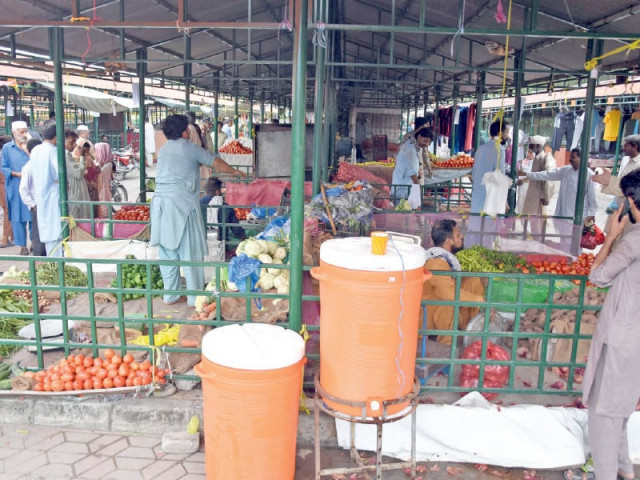Traders observe shutter-down strike
Business life in ICT, Pindi & Hazara divisions comes to a standstill

Traders across the Rawalpindi division and the twin cities observed a shutter-down strike on Wednesday against the government's tax reforms, including the 'Tajir Dost Scheme'.
Five months ago, the Federal Board of Revenue (FBR) introduced the 'Tajir Dost Scheme' to bring traders and wholesalers into the formal tax structure as required by the International Monetary Fund (IMF). The move had led to concerns and reservations among the traders.
In response, major trade organisations announced a nationwide strike against the Tajir Dost Scheme as well as heavy taxation and inflated electricity bills.
Trader's bodies have decried the tax challans - to the tune of Rs60,000 - issued to small businesses and retailers, saying those registered under the scheme were promised they would not have to pay more than Rs1,200 in taxes.
On Tuesday, trader's organisations from Rawalpindi and Islamabad united to stage a protest rally and observe a complete shutter-down strike. This action was taken in response to the Pakistan Traders' appeal, expressing their opposition to the increase in taxes, the steep rise in electricity bills, the prolonged closure of industries, and the imposition of withholding tax. In a symbolic protest, many traders wore bread (roti) around their necks.
The strike brought business life in Rawalpindi centres to a standstill.
Markets and commercial centres were deserted, with empty streets where children took the opportunity to play cricket.
While the strike disrupted daily routines, many merchant families used the day to enjoy leisure time. Some travelled to Murree, while others visited amusement parks in Rawalpindi and Islamabad.
All major markets in Rawalpindi, including trade centres, shopping malls, commercial plazas, Murree Road, Raja Bazaar, Fawarah Chowk, Trunk Bazaar, Nirankari Bazaar, and others, remained closed. Even small markets and stalls in Saddar and other inner-city areas observed a complete shutdown. This marked the first time in the country's history that essential services, including food and grocery stores, medical shops, bakeries, and ovens, were closed, leaving citizens without access to basic necessities.
In Islamabad, all major markets such as Aabpara, Supermarket, Jinnah Super, and Melody, as well as markets in all sectors, were completely shut down. In Rawalpindi district, tehsils like Gujjar Khan, Kallar Syedan, Kahuta, Kotli Sattian, Murree, and Taxila also witnessed a complete shutdown of market activities. Shopkeepers, although present in their markets, refused to open their shops and participated in the protest. Despite the widespread closures, essential services such as banks, utility stores, petrol pumps, government offices, educational institutions, and public transportation continued to operate normally.
A significant protest took place in Chandni Chowk, where traders carried placards and banners demanding their right to strike and opposing. Additionally, on the call of the Jamaat-e-Islami All Trade Union, the lawyers' community and political and religious parties, a complete shutter-down strike was in the Hazara Division.



















COMMENTS
Comments are moderated and generally will be posted if they are on-topic and not abusive.
For more information, please see our Comments FAQ